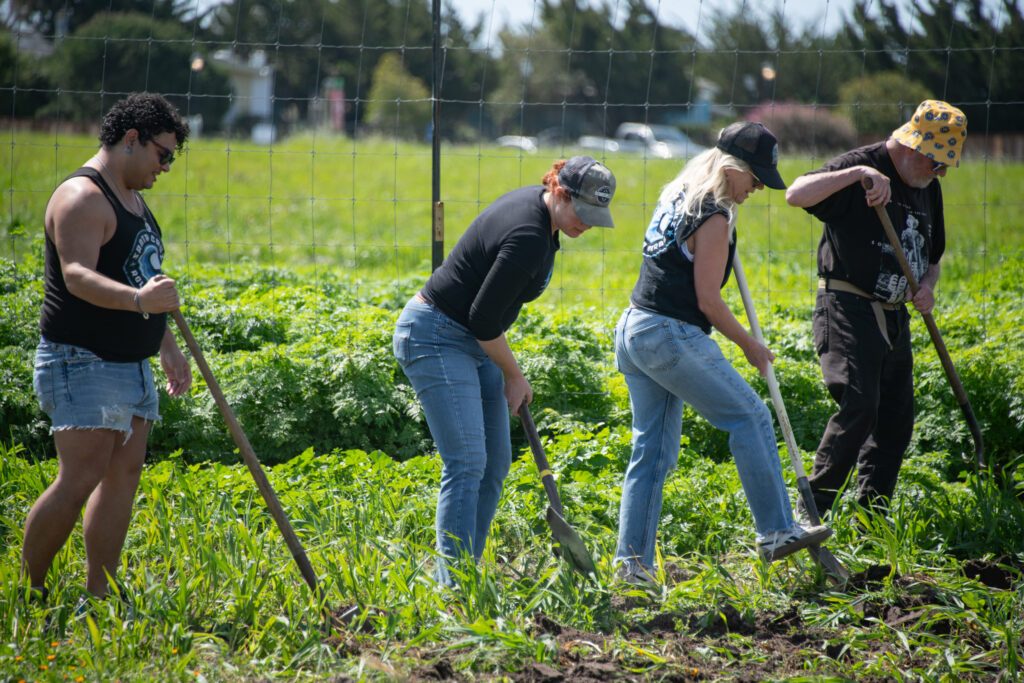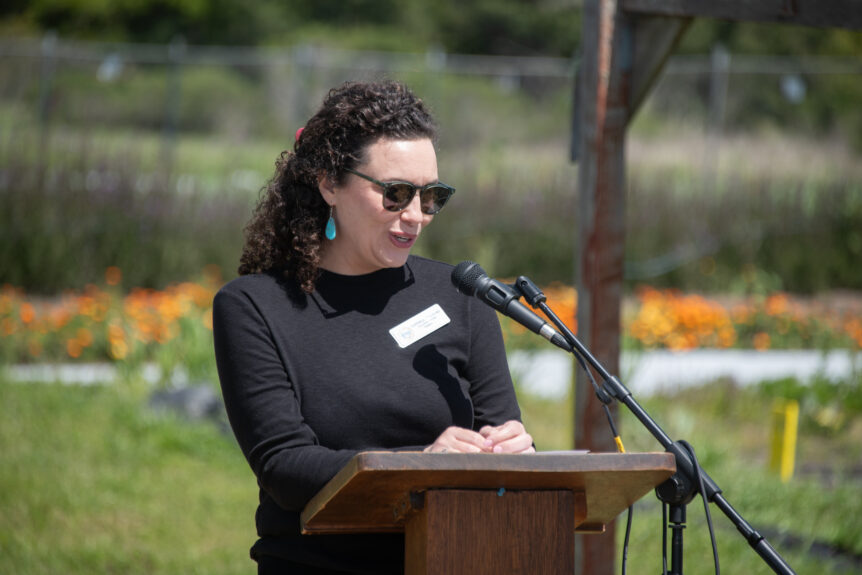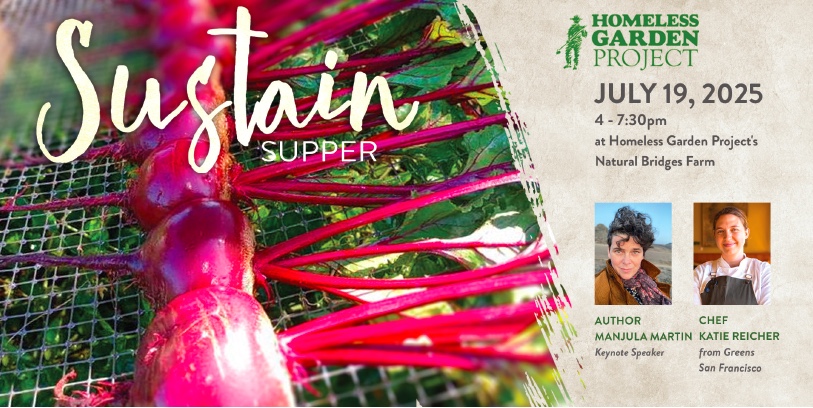The following talk was delivered by Gabriela Triguiero at HGP’s Day of Service in Honor of Cesar Chavez on April 5th, 2025 at Natural Bridges Farm. Gabriela is Executive Director of Big Brothers Big Sisters of Santa Cruz County and a member of the Santa Cruz City Council.
Good afternoon, everyone.
It’s an honor to join you today at the Homeless Garden Project—this beautiful space that reflects the values of dignity, transformation, and collective care. Thank you for welcoming me, and for the work each of you does to nurture not only this land, but this community.
We gather today to honor the life and legacy of César Chávez—a man who believed in justice, nonviolence, and the power of organizing from the ground up. A man who knew what it meant to both labor under the hot sun and to stand tall in pursuit of dignity for all workers.
César Chávez saw the people that society tried to overlook—people whose strength, resilience, and contributions were too often ignored. He believed that no matter your job, your income, or your background, your life and labor mattered. That fairness, respect, and humanity are not privileges—they are rights.
That belief lives on here. The Homeless Garden Project doesn’t just offer employment—it offers restoration. It reaffirms that healing, dignity, and contribution are possible for all. And it reminds us that the land itself can be a source of justice.
His message remains clear and urgent: we are strongest when we care for one another.
As someone shaped by community organizing, I carry César’s values with me every day. I also carry the profound influence of Dolores Huerta, co-founder of the United Farm Workers and a woman who has deeply impacted my personal journey. Dolores taught me that speaking truth to power is not just a right—it is a responsibility.
It was in that spirit that I brought forward one of my first resolutions as a newly elected Councilmember: to reaffirm Santa Cruz as a sanctuary city. Because, like César and Dolores, I believe our communities must lead with courage—protecting the vulnerable, defending human rights, and choosing compassion over fear.
César Chávez taught us that courage isn’t about loud declarations—it’s about quiet, steady action. It’s about organizing in the face of injustice, standing up even when you’re tired, and believing that the most marginalized among us deserve the most protection.
His message remains clear and urgent: we are strongest when we care for one another. When we advocate not just for ourselves, but for the person next to us—especially those who’ve been pushed to the margins.

As César once said, “The fight is never about grapes or lettuce. It is always about people.”
So today, let us honor César not only in word, but in action. Let us continue his fight for equity, housing, labor rights, and belonging. And let us remember the rallying cry that moved a movement:
“Sí, se puede.” Yes, we can.
Yes—we can build a community where justice is rooted in every institution, every policy, and every garden.
Thank you. ¡Gracias!


